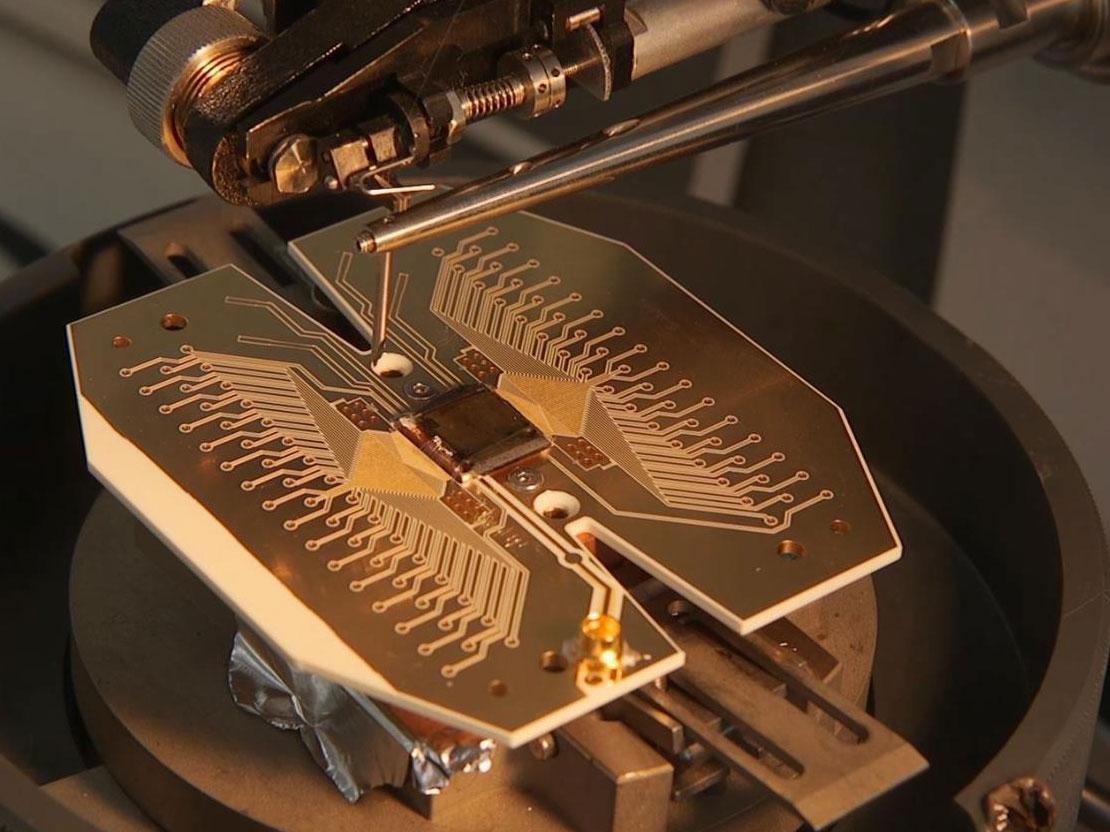Quantum computing breakthrough could help 'change life completely', say scientists
'It is the Holy Grail of science ... we will be able to do certain things we could never even dream of before'

Scientists claim to have produced the first-ever blueprint for a large-scale quantum computer in a development that could bring about a technological revolution on a par with the invention of computing itself.
Until now quantum computers have had just a fraction of the processing power they are theoretically capable of producing.
But an international team of researchers believe they have finally overcome the main technical problems that have prevented the construction of more powerful machines.
They are currently building a prototype and a full-scale quantum computer – many millions of times faster than the best currently available – could be built in about a decade.

Such devices work by utilising the almost magical properties found in the world of the very small, where an atom can apparently exist in two different places at the same time.
Professor Winfried Hensinger, head of the Ion Quantum Technology Group at Sussex University, who has been leading this research, told The Independent: “It is the Holy Grail of science, really, to build a quantum computer.
“And we are now publishing the actual nuts-and-bolts construction plan for a large-scale quantum computer.”
It is thought the astonishing processing power unleashed by quantum mechanics will lead to new, life-saving medicines, help solve the most intractable scientific problems, and probe the mysteries of the universe.
“Life will change completely. We will be able to do certain things we could never even dream of before,” Professor Hensinger said.
“You can imagine that suddenly the sky is the limit.
“This is really, really exciting … it’s probably one of the most exciting times to be in this field.”
He said small quantum computers had been built in the past but to test the theories.
“This is not an academic study any more, it really is all the engineering required to build such a device,” he said.
“Nobody has really gone ahead and drafted a full engineering plan of how you build one.
“Many people questioned, because this is so hard to make this happen, that it can even be built.
“We show that not only can it be built, but we provide a whole detailed plan on how to make it happen.”
The problem is that existing quantum computers require lasers focused precisely on individual atoms. The larger the computer, the more lasers are required and the greater the chance of something going wrong.
But Professor Hensinger and colleagues used a different technique to monitor the atoms involving a microwave field and electricity in an ‘ion-trap’ device.
“What we have is a solution that we can scale to arbitrary [computing] power,” he said.
“We are already building it now. Within two years we think we will have completed a prototype which incorporates all the technology we state in this blueprint.
“At the same time we are now looking for industry partner so we can really build a large-scale device that fills a building basically.
“It’s extraordinarily expensive so we need industry partners … this will be in the 10s of millions, up to £100m.”
Commenting on the research, described in a paper in the journal Science Advances, other academics praised the quality of the work but expressed caution about how quickly it could be developed.
Dr Toby Cubitt, a Royal Society research fellow in quantum information theory at University College London, said: “Many different technologies are competing to build the first large-scale quantum computer. Ion traps were one of the earliest realistic proposals.
“This work is an important step towards scaling up ion-trap quantum computing.
“Though there's still a long way to go before you'll be making spreadsheets on your quantum computer.”
And Professor Alan Woodward, of Surrey University, hailed the “tremendous step in the right direction”.
“It is great work,” he said. “They have made some significant strides forward.”
But he added it was “too soon to say” whether it would lead to the hoped-for technological revolution.
Join our commenting forum
Join thought-provoking conversations, follow other Independent readers and see their replies
Comments
Bookmark popover
Removed from bookmarks